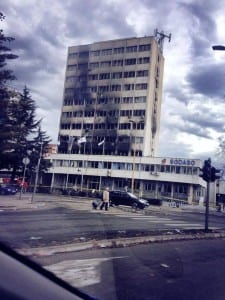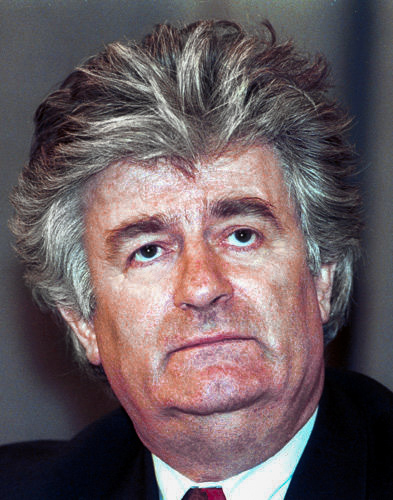Bosnia’s protests: Made in Dayton
By Sean L Hanley, on 10 February 2014
While much media attention has focused on Ukraine, Bosnia-Herzegovina too is experiencing waves of mass protest against corruption and stagnation. The roots writes Eric Gordy lie in the unsustainable political system established at Dayton in 1995.
Conversation 1 was with the waiter in a large Sarajevo hotel, where we were generally a bit sheepish to be attending our conference (the deciding factor was that it was big enough for all of the participants, the down side was its odd business history and the fact that the main conference room was also where former Bosnian-Serb leader Radovan Karadžić liked to hold his soirees with the media). A colleague and I had heard that the employees of the hotel had not been paid for several months, so we asked. It was true, he told us.
Most of the employees had remained at the hotel through a series of ownerships and bankruptcies, and had often faced periods of reduced pay, no pay, or something in lieu of pay. So what were they working for? They wanted to keep the hotel going in the hope that one day it might become profitable again, and they wanted the employer to keep making contributions to the pension and medical care funds.
Conversation 2 was with a group of postgraduate students in Tuzla. Most of them had or were seeking work as schoolteachers. And they were only able to get short-term jobs. Why no permanent jobs in schools? Because available workplaces are distributed among the local political parties, who fill them with their members and put them on one-year contracts.
The effect of this is that no young person can get a job except through the services of a political party, and no young person can keep a job except by repeatedly demonstrating loyalty to the political party. You can probably imagine the wonderful effect this has on the development and teaching of independent, critical thinking in schools.
I could go on with vignettes. I have lots of them. But these sorts of scenes might be thought of as the background of the protests that began last week in Tuzla, developed into police violence by Thursday afternoon, and spread across Bosnia’s larger entity, the Federation of Bosnia-Herzegovina partly in the form of mob vandalism by Friday. (more…)
 Close
Close





